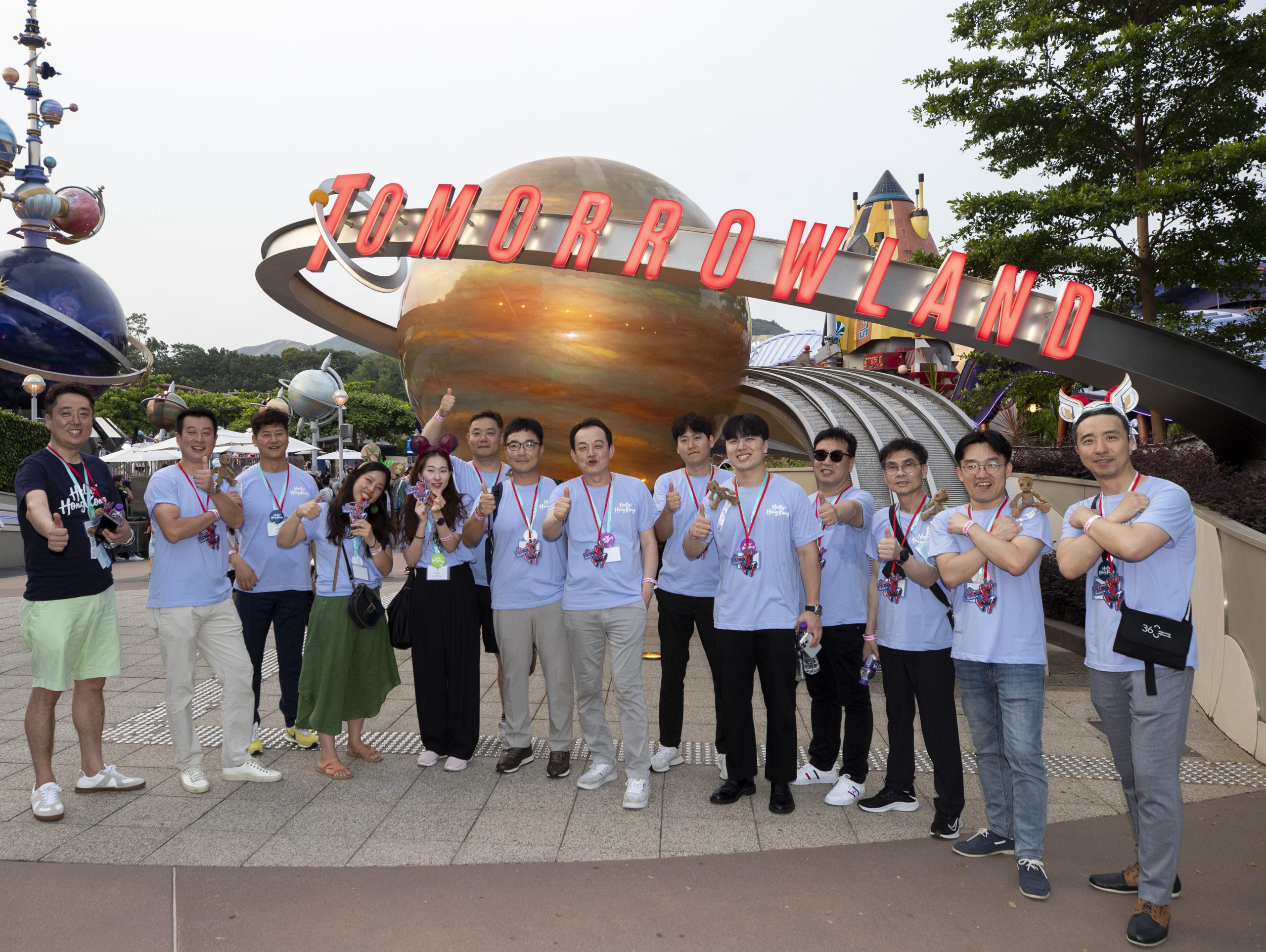
The events business is a largely unregulated global industry but planners have to meet increasingly complex and demanding international standards to succeed and that’s where training, qualifications and accreditation come in, meeting professionals say.
“We are affected by trends and influences of all sorts that are out of our control whether they be economic, political or social,” says Kevin Hinton, CEO of the Society for Incentive Travel Excellence (Site).
“Planners need to continuously learn in order to best serve their stakeholders, manage their businesses and understand risks. Our profession is also largely undefined and misunderstood, and certifications help to define the competencies required to be successful.”
And there are many training courses and certifications for planners in Asia to choose from. The best known include:
CMP: Certified Meeting Professional programme run by the Convention Industry Council.
CMM: Certificate in Meeting Management offered by Meeting Professionals International.
EDGE: A qualification offered by the International Association of Professional Congress Organisers.
CSEP: Certified Special Events Professional accreditation run by the International Live Events Association.
CIS: Certified Incentive Specialist qualification offered by Site.
EMD: Exhibition management degree set by UFI, the Global Association of the Exhibition Industry.
DES: Digital Event Strategist accreditation offered by the Virtual Edge Institute.
There are also international compliance guidelines, including:
LEED: Leadership in Energy and Environmental Design, a third party verification for green buildings, and,
ISO 20121: An international standard that offers guidance and best practice to help manage events and control their social, economic and environmental impact.
Sherrif Karamat, chief operating officer of the Professional Convention Management Association (PCMA), believes the CMP offers the best course of study, followed by the DES for digital events.
“From a logistics point of view, I still believe that the CMP is the best accreditation in our industry and I know that the Convention Industry Council is working hard to keep the content current and equally they are doing their best to make sure this certification has global applicability,” he says.
“With respect to digital/virtual events, without question the Virtual Edge Institute (VEI) is the global leader in education in this arena and the certification is called a Digital Event Strategist (DES) – in the interest of full transparency, the Virtual Edge Institute is owned by PCMA.”
Karamat says professional development “is important on many fronts, but has gained even greater importance in a globalised context”.
“Accreditation is a signal to those you are hoping to do business with, that you have a minimum level of knowledge on the subject matter and, regardless of where in the world the event is being staged, the organiser can take comfort that they are dealing with professionals of a certain standard.
“Accreditation is also very important to one’s professional development as it shows a level of commitment to keeping your skills current and is one measurement for employment and advancement. Last, but certainly not least, the only constant in the world of business today is change and unless you are continuously updating your skills, employment opportunities as well as career advancement opportunities will be less likely.”
New Zealand-based Jan Tonkin, managing director of The Conference Company and president of the International Association of Professional Congress Organisers (Iapco), says that “education underpins professional standing”.
“Being equipped with a relevant qualification is the starting point and from then on it is about lifelong learning. For our industry that means tapping into a variety of learning opportunities, including those outside our own world. Courses in marketing, communication, presentation skills and the psychology of adult learning spring to mind,” she says.
“Collaboration across the various segments of the meetings industry is equally rewarding. Iapco’s Edge seminars have been attracting not only PCOs/meeting planners, but also convention bureaus and venue/hotel personnel. Evaluations have shown on each occasion that it has been the conversations among all three parties and the shared learning that have been particularly beneficial.”
Tonkin says that environmental issues, health and safety, and technology have highlighted the need for targeted training.
“The sustainability debate created awareness of the need to incorporate good practice into business, as has health and safety legislation more recently,” she says.
“The attention given to meeting design, programme formats and the delegate experience has amplified as they have become key topics in industry training programmes. However, above all I think it is the knowledge within the industry, stimulated by training programmes, of how to harness technology for the good of conferences that has had the most benefit.”
Tonkin agrees with Sherrif that the virtual domain is another area that has benefited from training programmes. “Teaching the skills required for planning and delivering hybrid conferences and virtual programmes has extended reach considerably.
“Social media skills training has changed the way conferences are marketed, the way conferences help to build community and the way conference programmes are delivered.”
Robert Rogers, founder of and principal designer with Eventsman in Hong Kong, and Malaysia-based Jonathan Seevaratnam, CEO of event management agency Jiggee, both hold CSEP accreditation.
Seevaratnam says the main difference the CSEP made to his skills was to sharpen his focus on attention to detail.
“From the time I got certified in 2013 until today, I’ve seen a marked improvement in how I personally have been handling the events we produce,” he says. “The attention to detail, the preparation, the safety and overall coordination of events have improved by leaps and bounds as I guided my team with a notion that no stone must be left unturned as we produced one event after another. I truly believe this overall improvement stemmed from the onset of becoming a certified event planner.”
Rogers describes continual professional development as “a must”. “Clients are always looking for the newest, latest, greatest, thing. If a client asks about something they saw at another event and you don’t know about it they may ask someone else,” he says.
“Knowing market trends not only keeps your clients but helps deliver new ones. As part of my CSEP I have to renew every five years. In order to renew I must have completed a certain amount of professional development. Personally, I love learning I find it inspiring and fulfilling. I am just about to renew for the second time.”

Incentive excellence
The incentive organiser community has its own training schemes, with the Society for Incentive Travel Excellence (Site) pledging “to work with Asian-based organisations to ensure programmes meet the region’s specific needs”.
“While there are a number of industry certifications focused on the planning of meetings and events, Site is the only global organisation dedicated to providing education specific to incentive travel and motivational events,” says Kevin Hinton, Site’s CEO.
“In 2013, the association introduced the Certified Incentive Specialist (CIS), for both Site members and non-members, to provide planners and suppliers a greater understanding of the fundamentals of the creative and effective utilisation of incentive travel programmes. To date over 500 professionals from 33 countries have received their CIS designation. We are currently exploring offering the CIS course in China later this year,” he says.
Hinton says environmental issues play a big part in training. “Many events are planned and managed with the environmental impact in mind. Food waste is a problem that event organisers and venues are proactively reducing, but it takes awareness and knowledge to plan ahead.”
He adds that results from the 2015 Site index show that incorporating corporate social responsibility (CSR) into an incentive travel programme has become the norm, with approximately seven in
10 programmes including a CSR activity.
Earning potential
Meeting professionals who hold the Convention Industry Council’s Certified Meeting Professional (CMP) accreditation can earn around US$8,500 more than those who don’t have it, according to a salaries survey.
Results from the Professional Convention Management Association’s 2016 annual salary survey found that, while the average salary of around 400 association, corporate, and independent meeting professional respondents was $80,505, those with the CMP after their names earned about $8,500 more than that.
More than 10,000 meeting professionals in 55 countries around the globe now hold
the designation.
But Hong Kong-based Robert Rogers, who is a Certified Special Events Professional (CSEP) – a qualification set by the International Live Events Association – says he doubts that it is the CMP accreditation alone that nets the added value. “I am not sure it is just the designation that got more money, more likely they are better managers,” he says.
“Quality accreditations are great ways to discover how much you don’t know. Before I did my CSEP I had been working in the industry for over 15 years. I was pretty confident, but studying for the exam gave me the chance to really examine my process and methodology of working.
“The study gave me the knowledge of where my gaps were and how to fill them.
Simply the process of seeking my accreditation made my events much better and my clients much happier.”
Ticking the Boxes
While more professionals in the MICE industry in Asia are recognising the need for professional training, there will be an increase in international compliance standards in the years to come, predicts Ubaldino Couto, lecturer in event management at the Institute for Tourism Studies in Macau.
“Training in the area of international standards, such as ISO and LEED certifications will dominate the event industry in the future when there is more recognition. There will be more systematic standardisation,” he says.
“Those who work in events will have to meet and literally tick the boxes as they plan events – pretty much as they’re doing now, except the criteria they will be ticking their boxes against will be those developed by authoritative bodies. We see the same thing in other industries, which are being standardised with systems in place, such as the hotel trade, airlines and construction.”
Couto says planners need to be abreast of industry developments, “especially with the adoption of international practices, particularly in the area of sustainability, legal environments and technology”.
“Today’s innovation is tomorrow’s history. Things like technology, how green an event is, are factors that attract businesses elsewhere. Customers prefer greener events or event organisers prefer a venue that is more environmentally friendly, that makes their event brand look good. Event planners prefer one venue over another because of up-to-date technology, and so on.”
Healthy development
Health and safety has been the main area of industry discipline to benefit from compliance training, according to Jonathan Seevaratnam, CSEP, founder and CEO of the Jiggee event management agency.
“Green events, sustainability, and corporate social responsibility are gaining momentum, but still not to the point where they have become de facto beneficiaries,” Seevaratnam says.
“Personally, the events we produce have gained more traction from an HSSE – Health, Safety and Environment – standpoint, which is the main focus by clients from the oil and gas sectors. Their strict requirements have helped us improve our ways of producing and managing events.”
Seevaratnam cites three accreditations that particularly stand out at the moment. “The current availability of accreditations out of the USA appear to be the best, namely the CSEP, CMP and CMM programmes,” he says. “They task professionals to get certified by engaging those with ready industry knowledge to be tested based on case studies and scenarios from real issues that crop up during planning a meeting or producing an event, and how one best goes about solving problems and managing risks.
“This does wonders in terms of ensuring who makes the cut and will go out there and produce top-notch events.”


